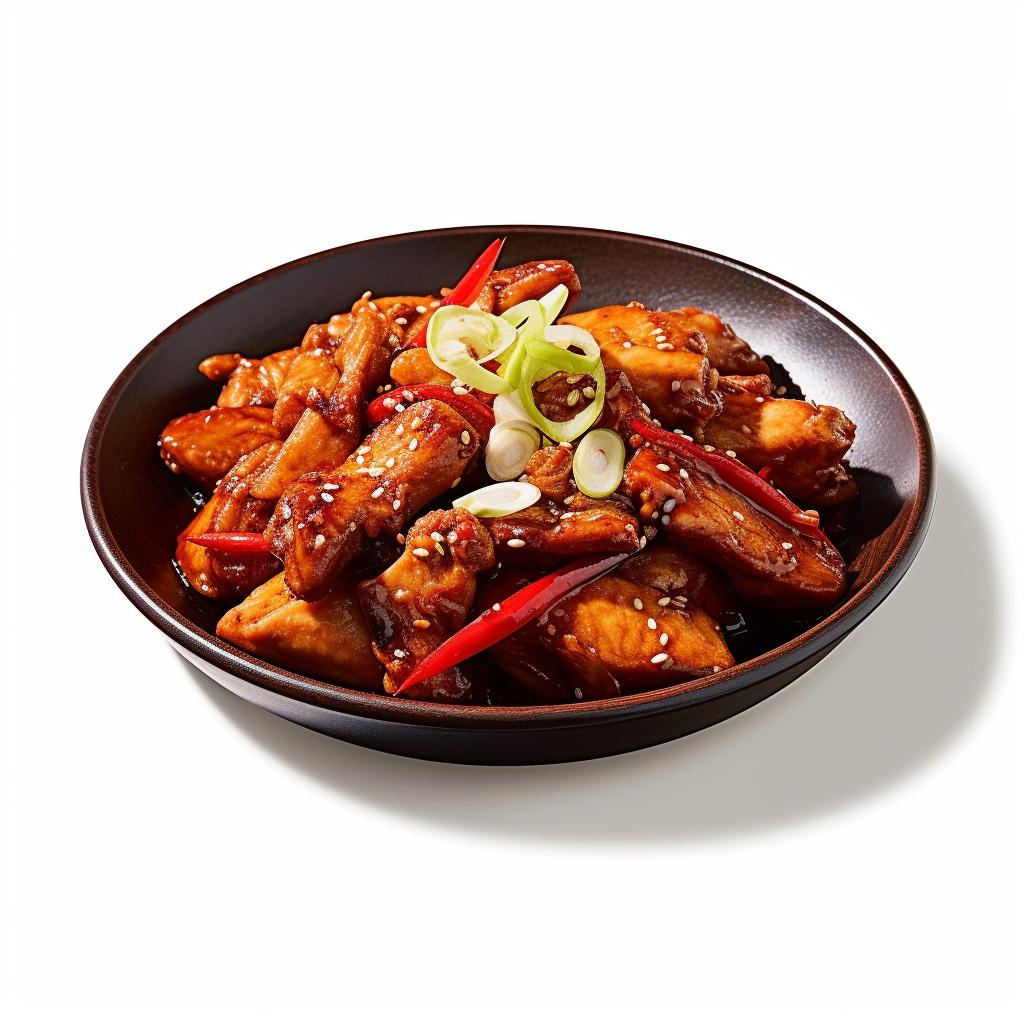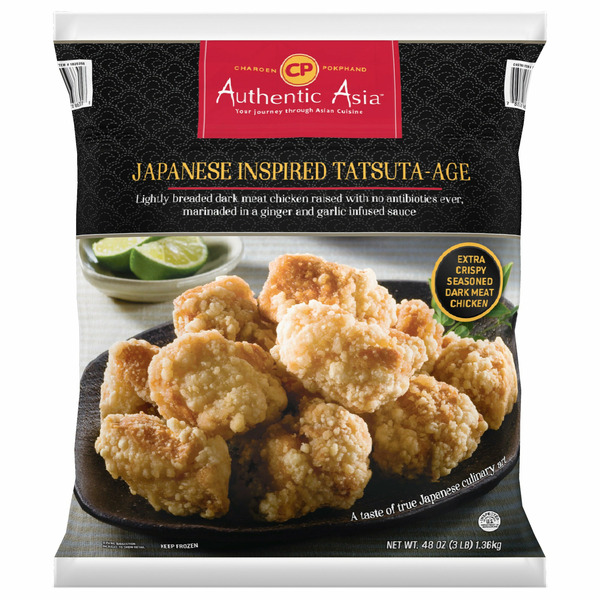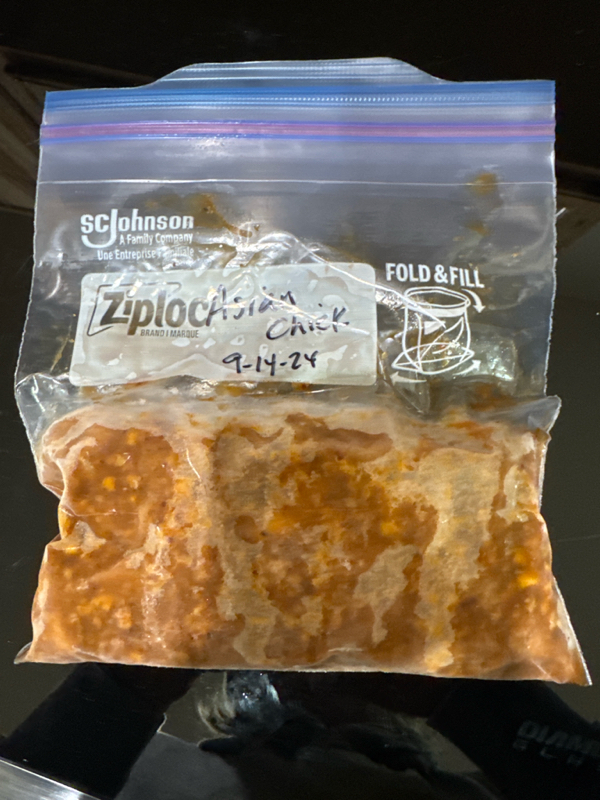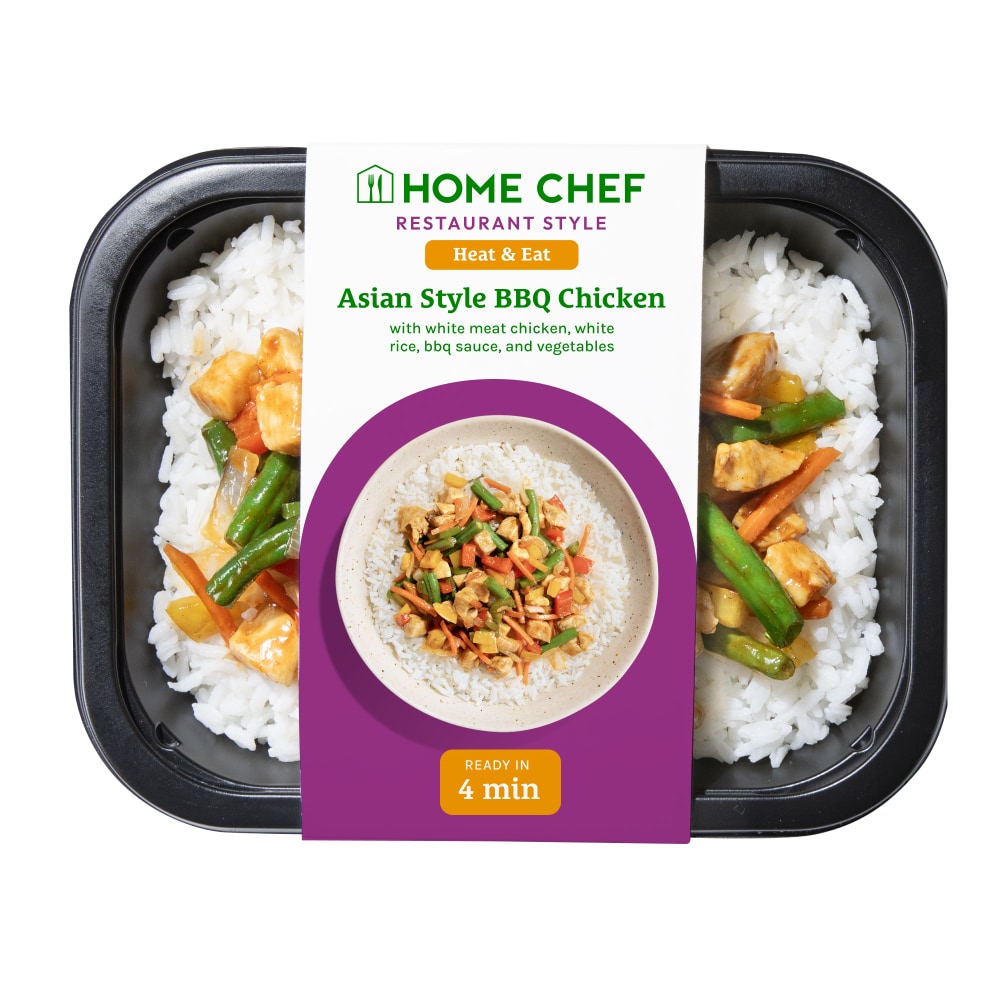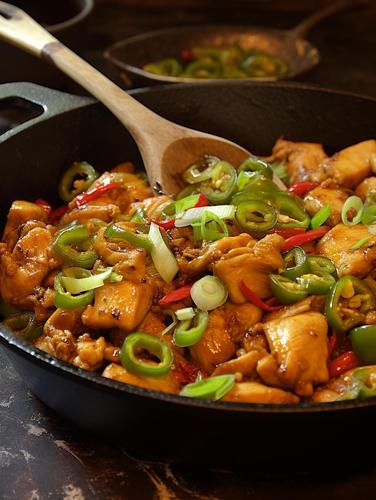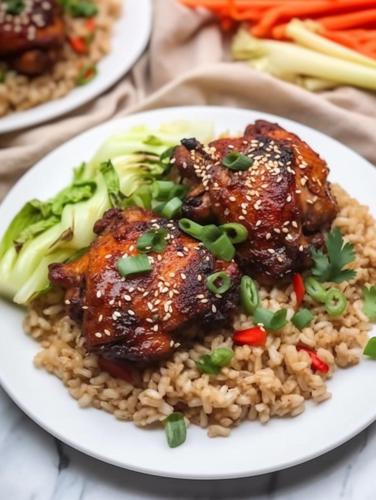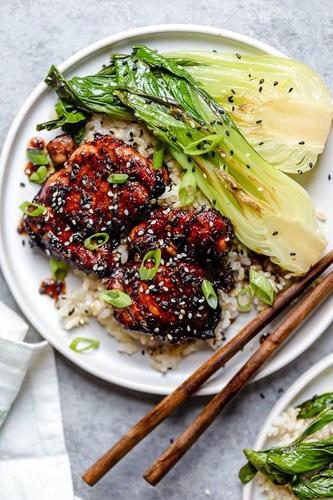Asian Chicken
Asian chicken is a delightful main dish in many eastern cuisines that's gaining popularity among many home cooks around the world. Known for its intriguing blend of savory, sweet, and sometimes spicy flavors, it is typically marinated, stir-fried, or grilled to infuse each bite with a punch of robust taste.
Asian chicken is versatile and can be served with a variety of accompaniments like noodles, rice, or drizzled atop a fresh salad. It's perfect for making healthy, lip-smacking meals at home, apt for both special occasions and weeknight dinners.
13%
CARBS
51%
FAT
35%
PROTEIN
8 Asian Chicken Products
EatingWell Spicy Asian Inspired Chicken
Spicyasianchicken
Healthy Choice, Modern Classics, Sweet & Spicy Asian Style Chicken Breast Fritter Chunks In A Sweet & Spicy Sauce, Whole Grain Rice With Red Peppers & Onions And Broccoli, Sweet & Spicy Asian Style Chicken, Sweet & Spicy Asian Style Chicken
CP Authentic Asia Japanese Inspired Tatsuta-Age
Asian Chicken
Home Chef Asian Bbq Style Chicken With White Meat Chicken, White Rice, Bbq Sauce, And Vegetables
Smart Made Asian-Style Garlic Chicken
3 Recipes for Asian Chicken
Asian Chicken FAQ
Cooking Asian chicken often involves marinating the chicken pieces to infuse it with a lively blend of sweet, savory, and sometimes spicy flavors, which is principally what makes the dish so enticing. The most common troubleshoots involve overcooking the chicken and not being able to infuse the desired flavors into the bird. While overcooking leads to a dry, rubbery texture, inadequate flavor depth can leave the dish tasting flat, despite using all the right ingredients.
To get the most out of your Asian chicken, utilize effective marination techniques. A good mix of soy sauce, sake, ginger, and sugar can do wonders. Correct proportioning and ample marination time are key. Stir-fry the chicken on a high flame to retain its juiciness while ensuring it's cooked all the way through.
Tip: Resting the chicken after cooking lets the juice flow back into the meat, leading to moist, flavorful bites. Meanwhile, not crowding the pan when stir-frying helps in even browning and flavor penetration.
What's the best cut of chicken to use for Asian chicken?
How long should I marinate the chicken?
Do I need to use a wok to make Asian chicken?
Can I use olive oil for stir-frying?
How can I make my Asian chicken spicier?
Is it necessary to use sake in the marinade?
Why is my chicken turning out dry?
How do I know when the chicken is fully cooked?
Why is my chicken not absorbing flavors?
My chicken always comes out too salty, how can I fix it?
Health Info
Macros
4g
CARBS
22g
FAT
27g
PROTEIN
Allowed on these diets
LACTOSE FREE
Contains these allergens
SOYBEANS
